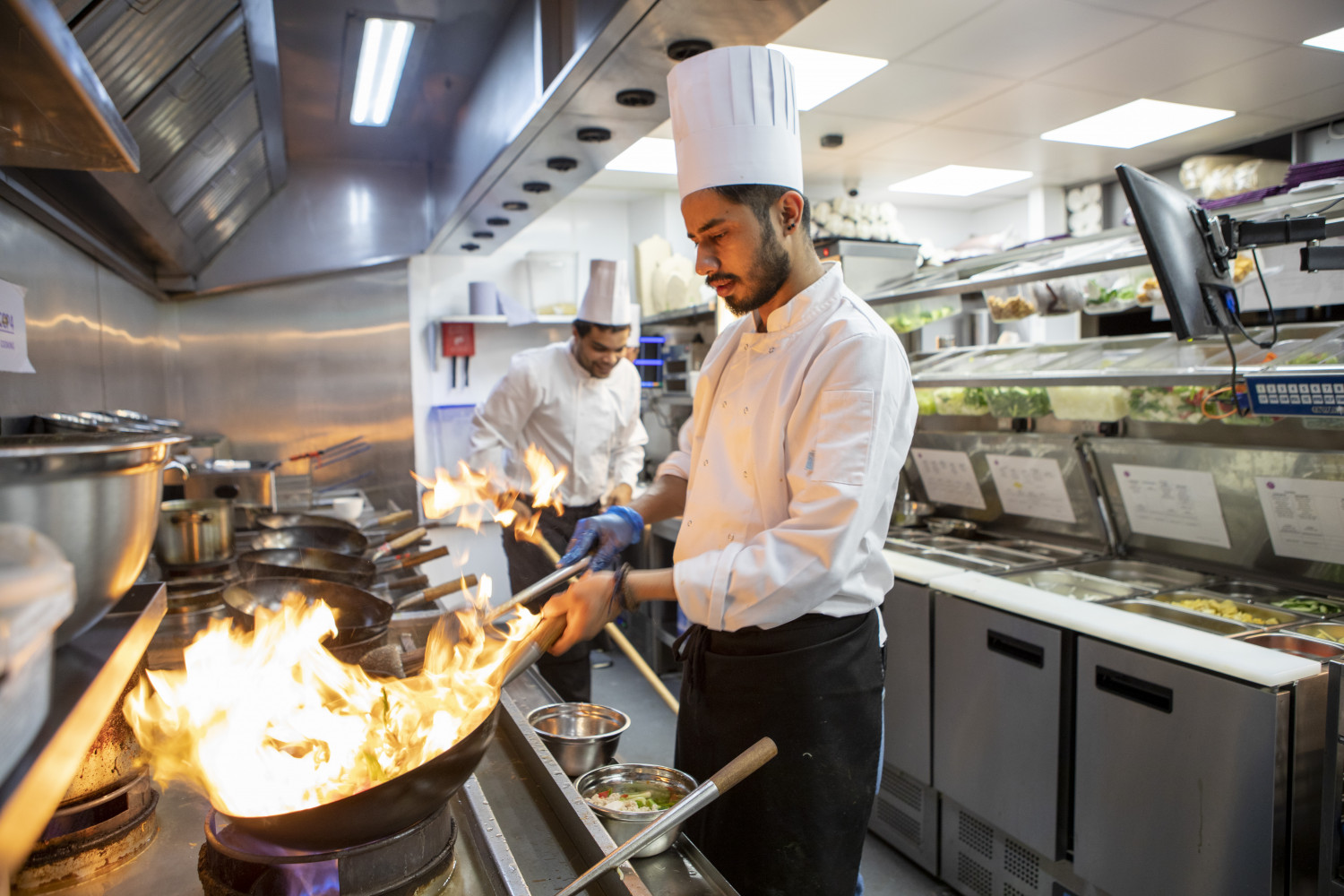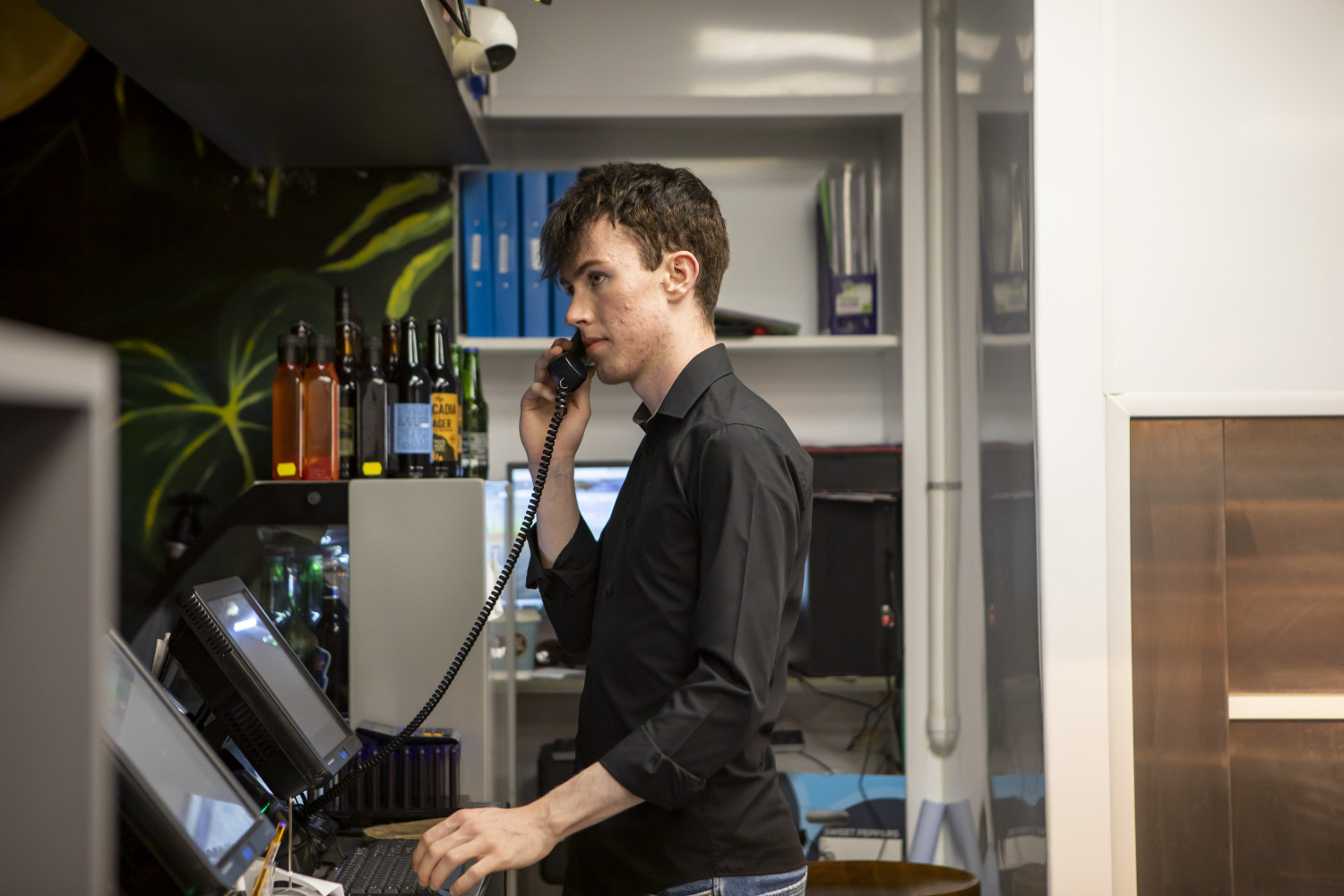Thinking of buying a franchise for your child? Read this first.
22-12-2021
I’m Brody Sweeney, the founder of Camile Thai Kitchen, an award winning home delivery franchise. This blog is not about my business, but rather some advice for if you’re thinking about franchising, or indeed already involved in it – and want to learn more.
At recent Franchise Exhibitions I’ve been to, a number of parents came up to chat about purchasing a franchise for their child to get them off the ground in business.
This is an idea I’m a huge advocate for, as it’s exactly how I got started in franchising myself. Sensing my interest in entrepreneurship – or perhaps my lack of interest in formal schooling – my dad purchased a Master Franchise for a print shop chain in Ireland, where I was born and brought up. As a young man, I wasn’t sure what I wanted to do, but my drive to discover it was there. Dad cleverly thought of a franchise as a way of getting me started and exposed to every area of business. I am eternally grateful to my father for the foresight he showed. I got a great practical introduction to business, in a measured way – lessons learned I could take to any business in the future. In fact I liked franchising so much that I have made a career out of it (hence why you're probably reading this article now!)
Based on my own experience, it would seem a very sensible way to give an adult child a firm start in business. When it works, it is wonderful. That said, for many, it doesn’t end well. When forced or done haphazardly, this well-meaning act can damage parent-child relationships irrevocably.
If this option is on your radar, I have set out some points to think about to help you get the outcome you’re looking for. These observations are based on my experience of seeing franchisees coming in with these backgrounds – as well as my experience as a franchisor who has witnessed them get off the ground.
1. There are no rules – it can be great or it can be disastrous.
Getting your kids involved in a franchise can either be a great decision for all involved (like it was for me), or it can be a disaster that can contribute to poor relations with your child. All I can say is that the better the preparation – including what we’re discussing below – greatly reduces the possibility of it all going wrong. A franchise, like any gift or investment, is not a one-size-fits-all solution to all of life’s problems. You know your child better than any franchisor – the following points will certainly help you assess the situation critically.
2. If they are not suited to running a business, a franchise won’t change that.
Giving your child a franchisee is not like giving them a car. They have to commit – fully.
Just just because you may come from a business family yourself, it doesn’t mean that your children are going to want to follow in those footsteps. I have four children myself, and unquestionably three of them are neither suited nor interested in running a business. They have other talents and interests, but shoehorning them into business ownership just wouldn’t work.
If thinking about a franchise is on your mind, I would suggest an initial chat with your child to gauge their interest. The characteristics we would look for in a prospective franchisee include passion for business, commitment, good organizational and people skills, and the discipline to follow a system. The most crucial element, I would say, is the ability to deal with knockdowns without going to pieces. Setbacks are part and parcel of running any business. Age doesn’t come into it in my experience - much better a smart, enthusiastic 21 year old, than a world weary undisciplined 40 year old.
3. You have to keep your hands off.
When you’re putting up some or all of the money, and are emotionally invested in your child and the new business, it can be very difficult to avoid interfering with them or the business. You must.
If you trust them to run the business, then you have to let them at it, and make the mistakes that are just part of learning and growing in business. And mistakes will be made.
You have presumably invested money with the knowledge that it may not work, and you may not get it back. It doesn’t mean that advice can’t be offered in a constructive way, but rather than telling them what to do – suggesting questions like “Have you thought about if you did this…”
If you don’t trust them, then why would you risk the money?
4. It may affect your relationship with them.
Difficult as it may be, you have to try separate your separate family life from the life of the business, although of course they are inextricably linked.
I have one child working in my business, and we have made it a rule not to talk about business at family meal times or down times together – to separate our working relationship from our business one.
5. It will give them a great education in business.
One of the best things about joining a good franchise is that they will guide and support you every step of the way in establishing and running a business. With a restaurant chain like ours, this means from site selection, to designing and constructing the business, to helping with recruitment and training, designing a marketing plan and hand holding the new franchisee during the crucial opening period.
In our case, for new franchisees no matter how experienced, we run a “Start Your Own Business” course, focused on our particular business. They learn the rudiments of setting up and running a small business - Finance, Operations, Marketing and HR – the essential building blocks of any business. This is the key difference between franchising and going independent. Our formula takes out a chunk of guesswork in terms of profitability, staffing levels, food costs and more.
6. The risk of it all going wrong will be greatly reduced.
Setting up any new business, particularly for a young person with limited experience, is highly risky. It’s why banks demand so much security for new business loans. They know there’s a distinct possibility the money won’t be paid back, no matter how optimistic the business plan.
Banks also know that lending money to a new franchisee of an existing reputable franchise is substantially less risky than that new person going on their own. If the bank thinks it’s less risky, they are right, and there’s sound thinking behind their opinion.
A reputable franchise won’t let someone open a franchise if they don’t really feel that they are the right person – and they’ll test that hypothesis by interview, trial, psychometric tests, and taking up references. That reduces the risk. Then the franchise will know what sort of area or location is best, they’ll know what to sell the product or service for – how to market it – and how to recruit and train employees. All these things, and others that the franchisor is experienced in, reduce the risk of it all going wrong.
7. Careful guidance will lead to fewer major mistakes.
What young people usually miss at the start of a career in business are training and experience. A business degree may be useful for getting a job in industry, but it's pretty useless for setting up a business. This is where a franchise is brilliant.
As they open and run the new business, their hand will be held, to make sure they don’t go too far off track. For a motivated young person, this is a great introduction to business life, and they will learn lessons and habits that they can take to any business in their future lives, whether they continue down a franchise path or not.
This is how I got started in my business career. For me - A "College Dropout" - it worked really well. It shaved the rough edges off me, and gave me a good grounding on what was important.
8. Not all franchises are equal.
Franchises on offer for a potential new franchisee are as different as any other business opportunity, and not all of them work the same way. For example, a coaching franchise like Action Coach would not suit someone going into business for the first time, as to become a franchisee of their excellent system, would suit an experienced business person only.
Other franchise systems might not be suitable for a variety of reasons, and of course some are not a reputable and straight as others. As with any purchase, Buyer Beware. Take your time, be wary of a hard sell, and talk to as many existing franchisees as you can – as well as professional advisers like lawyers and accountants, before making a decision.
Good luck and stay safe.





